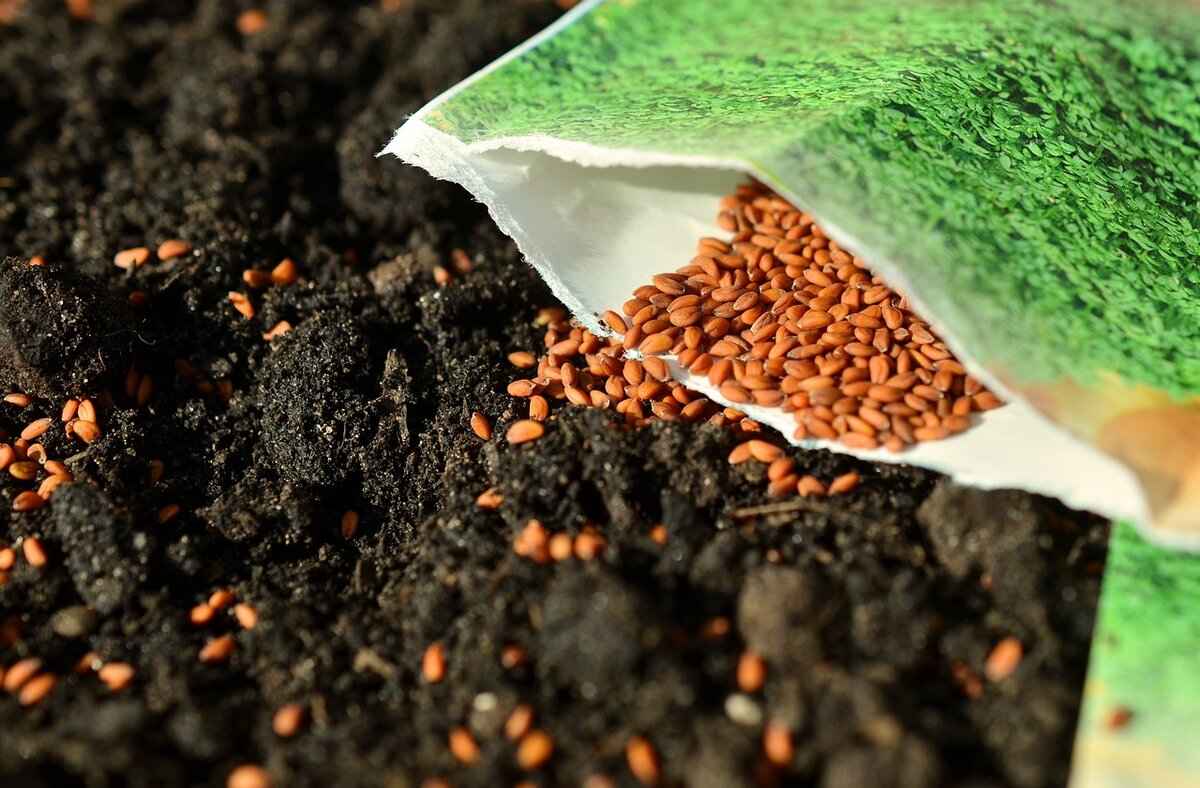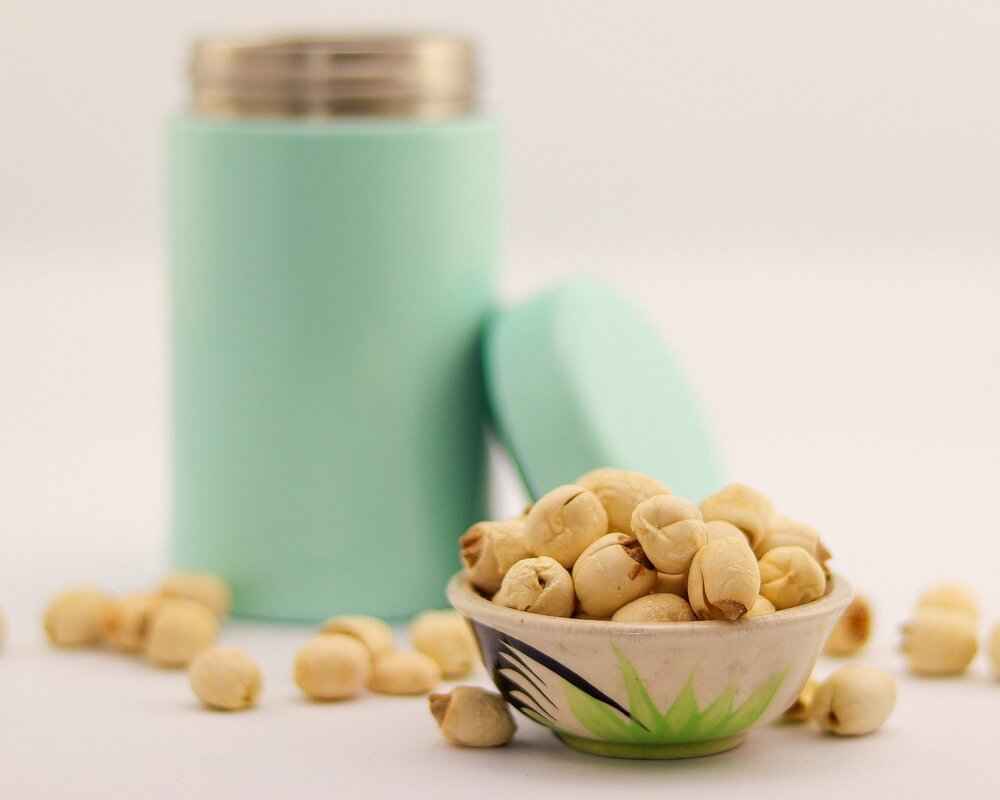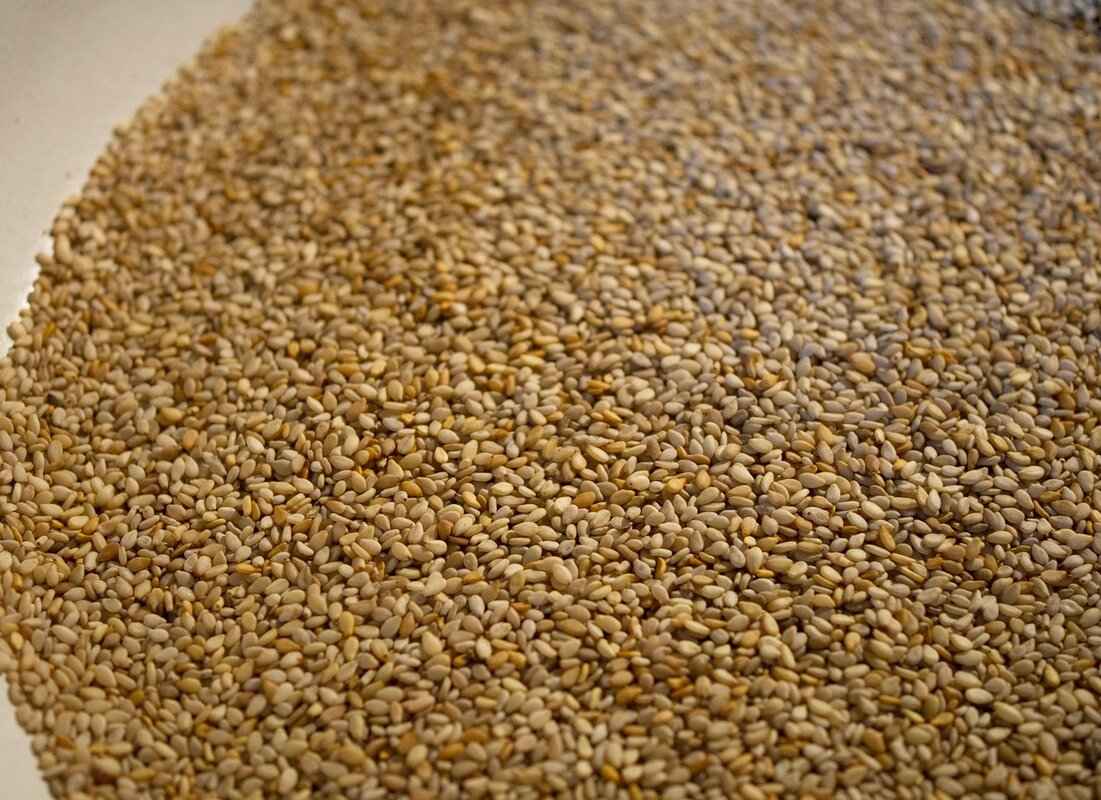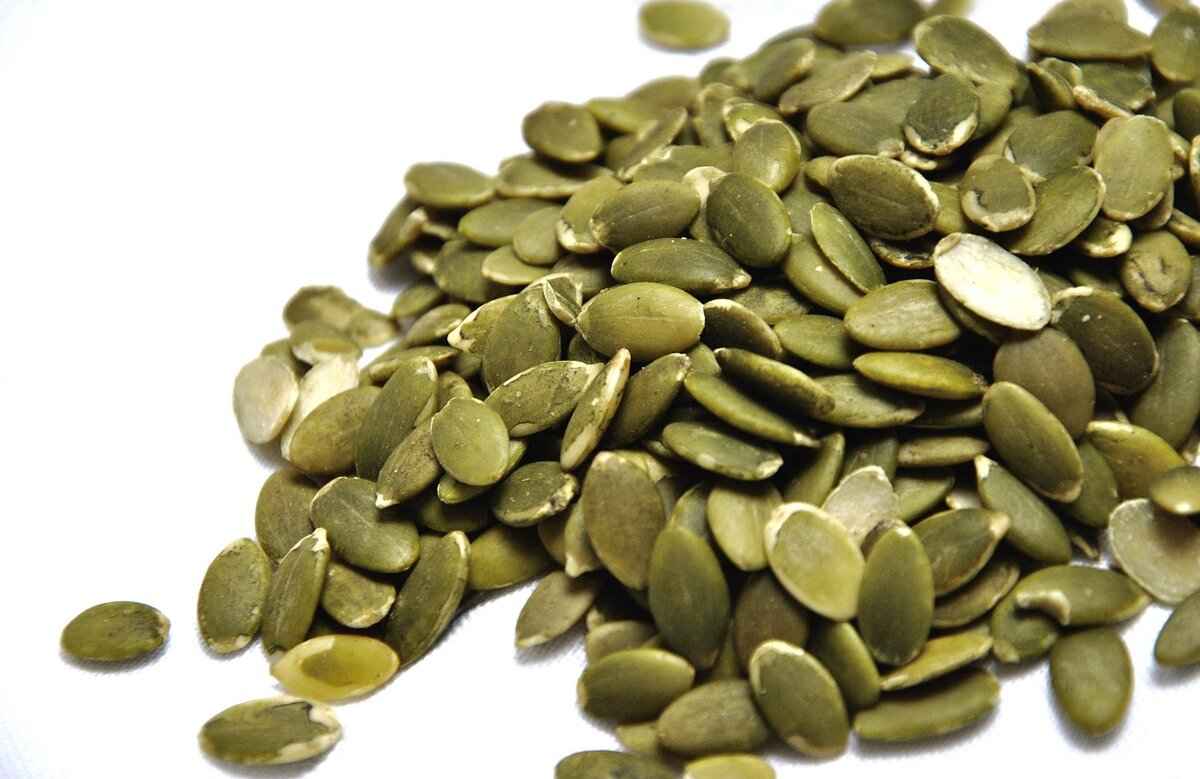Chia seeds, derived from the Salvia hispanica plant, have emerged as a popular superfood due to their impressive nutritional profile. These tiny seeds, available in black and white varieties, are rich in essential nutrients that can significantly enhance your overall health. This article delves into the numerous health benefits of chia seeds, their versatile uses, and practical tips on how to seamlessly incorporate them into your daily diet.
Chia seeds are tiny, nutrient-dense seeds that have been consumed for centuries, dating back to ancient civilizations. They are an excellent source of omega-3 fatty acids, fiber, protein, and various essential minerals, making them a valuable addition to a balanced diet.
Chia seeds are often labeled as a superfood due to their remarkable health benefits. They are packed with nutrients that support heart health, digestive health, and overall well-being.
One of the standout features of chia seeds is their high content of omega-3 fatty acids. These essential fats play a crucial role in maintaining heart health by:
- Lowering cholesterol levels
- Reducing inflammation
- Supporting brain function
Chia seeds are also an excellent source of dietary fiber. A single serving can provide up to 11 grams of fiber, which promotes digestive health by:
- Enhancing regular bowel movements
- Helping to manage weight by promoting a feeling of fullness
Chia seeds contain approximately 4 grams of protein per 2 tablespoons, making them a fantastic plant-based protein source. This protein supports:
- Muscle repair
- Overall health and wellness
These seeds are rich in essential minerals, including:
- Calcium – Important for bone health
- Magnesium – Supports muscle function and blood pressure regulation
- Phosphorus – Vital for energy production
Incorporating chia seeds into your diet is easy and versatile. Here are some popular ways to enjoy them:
- Add them to smoothies for a nutrient boost
- Mix them into oatmeal or yogurt
- Use them in baked goods like muffins or bread
- Sprinkle them on salads for added crunch
While chia seeds are generally safe for most people, excessive consumption can lead to digestive discomfort. It’s advisable to start with small amounts and gradually increase your intake.
The recommended daily intake of chia seeds is about 1 to 2 tablespoons. This amount is sufficient to reap their health benefits without experiencing potential side effects.
Individuals with certain medical conditions, such as those with swallowing difficulties or gastrointestinal disorders, should consult a healthcare professional before adding chia seeds to their diet.

What Are Chia Seeds?
Chia seeds, originating from the Salvia hispanica plant, have become a staple in health-conscious diets around the world. These tiny seeds, available in both black and white varieties, are not just a trendy superfood; they are a powerhouse of essential nutrients that contribute to overall wellness. Their remarkable versatility makes them an ideal ingredient for a variety of dishes, from smoothies to baked goods.
Chia seeds are tiny, nutrient-dense seeds that have been consumed for centuries, dating back to ancient civilizations such as the Aztecs and Mayans. These seeds are rich in omega-3 fatty acids, dietary fiber, and protein, making them a popular choice for those seeking to enhance their diet with healthy options. Not only do they provide essential nutrients, but they also offer a unique texture that can elevate the taste and nutritional profile of meals.
Chia seeds are often labeled as a superfood due to their impressive nutritional profile. They are an excellent source of omega-3 fatty acids, which are important for maintaining heart health and reducing inflammation. Additionally, they are high in dietary fiber, which aids in digestion and promotes a feeling of fullness. This combination of nutrients makes chia seeds a valuable addition to any balanced diet.
One of the standout features of chia seeds is their high content of omega-3 fatty acids. These essential fats are crucial for heart health, as they help lower cholesterol levels and reduce the risk of heart disease. Furthermore, omega-3s support brain function by improving memory and concentration. Incorporating chia seeds into your diet can be an effective way to boost your omega-3 intake without relying on fish or other animal products.
Chia seeds are also an outstanding source of dietary fiber. Just two tablespoons of chia seeds contain approximately 11 grams of fiber, which is about one-third of the recommended daily intake for adults. This high fiber content aids in digestion, helps maintain regular bowel movements, and can assist in weight management by promoting a sense of fullness. Including chia seeds in your meals can therefore be a simple yet effective way to improve digestive health.
In addition to being rich in omega-3s and fiber, chia seeds provide a substantial amount of plant-based protein. Each serving of two tablespoons contains about 4 grams of protein, making them an excellent option for vegetarians and vegans looking to boost their protein intake. This protein is essential for muscle repair and overall health, making chia seeds a smart choice for active individuals.
Chia seeds are packed with essential minerals such as calcium, magnesium, and phosphorus. These minerals play vital roles in maintaining bone health, muscle function, and overall metabolic processes. For those seeking plant-based sources of calcium, chia seeds are a fantastic option, providing a significant amount of this important mineral.
Incorporating chia seeds into your diet is incredibly easy. They can be added to smoothies, oatmeal, yogurt, or baked goods. You can also create a delicious chia pudding by soaking the seeds in milk or a milk alternative overnight. This versatile ingredient can enhance the nutritional value of your meals while adding a delightful crunch.
While chia seeds are generally safe for most people, it is important to consume them in moderation. Overconsumption can lead to digestive discomfort due to their high fiber content. The recommended daily intake is about 1 to 2 tablespoons, which is sufficient to enjoy their health benefits without adverse effects.
In summary, chia seeds are a remarkable superfood that offers numerous health benefits. Their rich nutritional profile, versatility in cooking, and ease of incorporation into various meals make them an excellent addition to a healthy diet.

Why Are Chia Seeds Considered a Superfood?
Chia seeds have gained significant recognition as a superfood due to their remarkable nutritional profile and health benefits. These tiny seeds, derived from the Salvia hispanica plant, are not only packed with essential nutrients but also offer a wide range of advantages that contribute to a healthy lifestyle.
- Omega-3 Fatty Acids: Chia seeds are one of the richest plant-based sources of omega-3 fatty acids, which are vital for maintaining heart health and reducing inflammation.
- Dietary Fiber: With approximately 11 grams of fiber per ounce, chia seeds support digestive health and help regulate blood sugar levels.
- Protein: These seeds contain about 4 grams of protein per 2 tablespoons, making them an excellent source of plant-based protein for muscle repair and growth.
- Essential Minerals: Chia seeds are rich in calcium, magnesium, and phosphorus, which are crucial for bone health and metabolic functions.
The omega-3 fatty acids found in chia seeds play a significant role in promoting overall health. They are known for:
- Heart Health: Omega-3s can help lower cholesterol levels and decrease the risk of heart disease.
- Brain Function: These fatty acids support cognitive function, enhancing memory and concentration.
- Anti-Inflammatory Properties: Omega-3s help reduce inflammation, which is linked to various chronic diseases.
Chia seeds are an excellent source of dietary fiber, which is essential for:
- Digestive Health: Fiber promotes regular bowel movements and prevents constipation.
- Weight Management: High fiber content helps you feel full longer, reducing overall calorie intake.
- Blood Sugar Control: Fiber can help stabilize blood sugar levels, making chia seeds a smart choice for those with diabetes.
Chia seeds are also rich in vital minerals that support various bodily functions:
- Calcium: Important for bone density and strength, chia seeds provide a plant-based source of this essential mineral.
- Magnesium: Supports muscle and nerve function, as well as blood pressure regulation.
- Phosphorus: Crucial for energy production and maintaining healthy bones and teeth.
Incorporating chia seeds into your daily meals is simple and versatile. Here are some ideas:
- Add them to smoothies for an extra nutrient boost.
- Mix them into oatmeal or yogurt for added texture and nutrition.
- Use them in baking—chia seeds can be added to bread, muffins, and energy bars.
- Make chia pudding by soaking the seeds in almond milk or coconut milk overnight.
With their nutritional density and numerous health benefits, chia seeds truly deserve their title as a superfood. By including them in your diet, you can enhance your overall well-being and enjoy the myriad of benefits they offer.
Rich Source of Omega-3 Fatty Acids
Chia seeds have gained recognition as a nutritional powerhouse, particularly for their impressive content of omega-3 fatty acids. These essential fats are vital for numerous bodily functions and contribute significantly to overall health. As a rich source of plant-based omega-3s, chia seeds play a crucial role in promoting heart health, reducing inflammation, and supporting brain function.
Omega-3 fatty acids are polyunsaturated fats that the body cannot produce on its own, making them essential nutrients that must be obtained through diet. The three main types of omega-3s include:
- ALA (Alpha-linolenic acid): Found in plant sources like chia seeds, flaxseeds, and walnuts.
- DHA (Docosahexaenoic acid): Primarily found in fish and algae, important for brain health.
- EPA (Eicosapentaenoic acid): Also found in fish, plays a role in reducing inflammation.
The omega-3 fatty acids in chia seeds are particularly beneficial for cardiovascular health. Regular consumption can help:
- Lower cholesterol levels: Omega-3s help reduce triglycerides and increase HDL (good) cholesterol.
- Reduce blood pressure: These fats can help lower blood pressure, especially in individuals with hypertension.
- Prevent blood clots: Omega-3s have anti-inflammatory properties that can reduce the risk of clot formation.
Chia seeds are not only beneficial for heart health; they also support cognitive function. The omega-3 fatty acids found in chia seeds are crucial for:
- Memory enhancement: A diet rich in omega-3s is associated with improved memory and learning capabilities.
- Reducing the risk of neurodegenerative diseases: Omega-3s may lower the risk of conditions such as Alzheimer’s and dementia.
- Improving mood: Some studies suggest that omega-3s can help alleviate symptoms of depression and anxiety.
Incorporating chia seeds into your diet is simple and versatile. Here are some practical ways to enjoy their omega-3 benefits:
- Add to smoothies: Blend chia seeds into your favorite smoothie for an extra nutrient boost.
- Make chia pudding: Soak chia seeds in almond milk or coconut milk overnight for a delicious and nutritious breakfast.
- Sprinkle on salads: Use chia seeds as a topping for salads, adding a crunchy texture and nutritional benefits.
The recommended daily intake of chia seeds is about 1 to 2 tablespoons. This amount provides a sufficient dose of omega-3 fatty acids without overwhelming your digestive system. It’s essential to consume them in moderation to reap their health benefits effectively.
While chia seeds are generally safe for most individuals, consuming them excessively can lead to digestive issues, such as bloating or gas. It’s advisable to start with small amounts and gradually increase your intake as your body adjusts.
In summary, chia seeds stand out as an exceptional source of omega-3 fatty acids, offering numerous health benefits. By incorporating them into your daily diet, you can enhance your heart health, support brain function, and contribute to overall wellness.
How Do Omega-3s Benefit Heart Health?
Omega-3 fatty acids are essential fats that our bodies cannot produce on their own, making it crucial to obtain them from dietary sources. Among the various sources of omega-3s, chia seeds stand out due to their high concentration of these beneficial fats. Understanding how omega-3s contribute to heart health can help individuals make informed dietary choices.
Omega-3 fatty acids are polyunsaturated fats that play a vital role in maintaining overall health. The three main types of omega-3s include:
- ALA (Alpha-linolenic acid) – Found in plant sources like chia seeds, flaxseeds, and walnuts.
- EPA (Eicosapentaenoic acid) – Primarily found in fish and algae.
- DHA (Docosahexaenoic acid) – Also found in fish and algae, crucial for brain health.
Research indicates that omega-3 fatty acids can help lower levels of triglycerides in the blood. High triglyceride levels are a significant risk factor for heart disease. By incorporating chia seeds into your diet, you can benefit from their ALA content, which has been shown to:
- Reduce triglyceride levels
- Increase HDL (good cholesterol) levels
Heart disease remains one of the leading causes of death globally. Consuming omega-3 fatty acids can significantly reduce the risk of developing heart disease by:
- Decreasing inflammation: Omega-3s possess anti-inflammatory properties that help lower the risk of chronic diseases, including heart disease.
- Improving blood vessel function: They enhance the flexibility of blood vessels, promoting better circulation and reducing blood pressure.
- Preventing plaque buildup: Omega-3s can help prevent the accumulation of plaque in the arteries, which is a major contributor to heart attacks and strokes.
In addition to lowering cholesterol and reducing the risk of heart disease, omega-3 fatty acids contribute to overall cardiovascular health by:
- Supporting heart rhythm: Omega-3s can help stabilize heart rhythms, reducing the likelihood of arrhythmias.
- Enhancing endothelial function: The endothelium is the thin layer of cells lining the blood vessels. Omega-3s help maintain its health, which is essential for cardiovascular function.
Adding chia seeds to your diet is an easy way to boost your omega-3 intake. Here are some practical tips:
- Add them to smoothies for a nutritional boost.
- Sprinkle them on salads or yogurt for added texture.
- Use them in baking, such as in muffins or energy bars.
In conclusion, the omega-3 fatty acids found in chia seeds are a powerful ally in promoting heart health. By lowering cholesterol levels, reducing the risk of heart disease, and enhancing overall cardiovascular function, these tiny seeds can have a significant impact on your well-being. Incorporating chia seeds into your daily diet is a simple yet effective way to harness the benefits of omega-3s.
Impact on Brain Function
The impact of omega-3 fatty acids on brain function is profound and multifaceted. These essential fats, particularly abundant in chia seeds, are crucial for maintaining cognitive health. As research continues to unveil the myriad ways omega-3s contribute to mental well-being, it becomes increasingly evident that incorporating chia seeds into your diet can be a simple yet effective strategy for enhancing brain function.
Omega-3 fatty acids, especially EPA (eicosapentaenoic acid) and DHA (docosahexaenoic acid), play a vital role in brain health. They are integral components of neuronal membranes, which are essential for cellular communication. This communication is key to processes such as memory formation and concentration.
Studies have shown that adequate intake of omega-3s can significantly improve memory performance. This is particularly important as we age, as cognitive decline can become more pronounced. Regular consumption of chia seeds, a rich source of these fatty acids, can help maintain sharp memory and cognitive function.
Research indicates that omega-3 fatty acids may help reduce the risk of neurodegenerative diseases such as Alzheimer’s disease and Parkinson’s disease. By incorporating chia seeds into your diet, you may lower inflammation and oxidative stress in the brain, both of which are linked to the progression of these conditions.
In addition to memory, omega-3s are known to enhance concentration and focus. This is particularly beneficial for students and professionals who require sustained mental performance. The inclusion of chia seeds in meals can provide a steady supply of omega-3s, supporting cognitive function throughout the day.
- Soak Chia Seeds: Soaking chia seeds before consumption can enhance their digestibility and nutrient absorption.
- Add to Smoothies: Blend chia seeds into smoothies for a nutritious boost.
- Incorporate into Breakfast: Sprinkle chia seeds on oatmeal or yogurt for added texture and health benefits.
While omega-3 fatty acids are generally considered safe, excessive consumption can lead to potential side effects such as digestive discomfort. It’s essential to consume chia seeds in moderation, typically around 1 to 2 tablespoons daily, to maximize benefits without adverse effects.
Individuals with limited dietary sources of omega-3s, such as vegetarians or vegans, should consider incorporating chia seeds into their diets. Additionally, those with a family history of neurodegenerative diseases may benefit from increased omega-3 intake as a preventive measure.
In conclusion, the omega-3 fatty acids found in chia seeds are essential for cognitive health, aiding in memory and concentration while potentially reducing the risk of neurodegenerative diseases. By understanding the benefits and incorporating chia seeds into your daily diet, you can support your brain health and enhance your overall well-being.
High Fiber Content and Digestive Health
Chia seeds, often hailed as a nutritional powerhouse, are particularly noted for their high fiber content. This characteristic makes them an excellent choice for enhancing digestive health. Rich in both soluble and insoluble fiber, chia seeds contribute significantly to maintaining a healthy digestive system.
Fiber plays a crucial role in digestion by adding bulk to the stool and facilitating regular bowel movements. The soluble fiber in chia seeds absorbs water, forming a gel-like consistency that helps to slow digestion. This process not only aids in nutrient absorption but also helps to regulate blood sugar levels, making chia seeds a great option for individuals managing diabetes.
- Prevention of Constipation: The high fiber content in chia seeds promotes softer stools, which can help prevent constipation.
- Detoxification: Regular bowel movements are essential for flushing out toxins from the body, contributing to overall health.
- Reduced Risk of Digestive Disorders: A diet rich in fiber can lower the risk of developing digestive disorders such as diverticulitis and irritable bowel syndrome (IBS).
Incorporating chia seeds into your diet can also support weight management. The combination of high fiber and protein content in chia seeds promotes a feeling of fullness, which can reduce overall calorie intake. Studies have shown that individuals who consume foods high in fiber tend to feel satiated longer, helping to curb unhealthy snacking and overeating.
Adding chia seeds to your meals is simple and versatile. Here are some practical ways to include them in your diet:
- Smoothies: Blend chia seeds into your morning smoothie for an easy nutritional boost.
- Oatmeal: Stir chia seeds into your oatmeal or yogurt for added texture and fiber.
- Baking: Incorporate chia seeds into baked goods such as muffins and bread.
- Salads: Sprinkle chia seeds on salads for a nutritious crunch.
While chia seeds are generally safe for most people, it’s important to consume them in moderation. Excessive intake may lead to digestive discomfort, including bloating and gas. It’s advisable to start with a small amount and gradually increase your intake to allow your digestive system to adjust.
In summary, chia seeds are an excellent addition to any diet, particularly for those looking to improve their digestive health. Their high fiber content not only promotes regular bowel movements but also aids in weight management and overall wellness. By incorporating chia seeds into your meals, you can enjoy the numerous health benefits they offer while enhancing your digestive system’s functionality.

Protein Powerhouse: How Much Protein Do Chia Seeds Contain?
Chia seeds, often hailed as a superfood, are not only rich in omega-3 fatty acids and fiber but also serve as an impressive source of protein. Each 2-tablespoon serving of chia seeds contains approximately 4 grams of protein. This makes them an excellent choice for those seeking to boost their protein intake through plant-based sources.
Protein is essential for various bodily functions, including muscle repair, immune function, and the production of enzymes and hormones. For individuals who follow a vegetarian or vegan diet, chia seeds provide a valuable protein source that can help meet daily nutritional needs.
- Muscle Repair: After physical activity, protein plays a crucial role in repairing and rebuilding muscle tissues.
- Weight Management: Protein is known to promote satiety, helping to control appetite and maintain a healthy weight.
- Immune Support: Adequate protein intake is vital for the production of antibodies that help fight infections.
In addition to their protein content, chia seeds are also packed with essential amino acids, which are the building blocks of protein. This makes them a complete protein source, meaning they provide all nine essential amino acids that the body cannot produce on its own. For those looking to enhance their protein intake, chia seeds can be a simple yet effective addition to meals.
Incorporating chia seeds into your diet is easy and versatile. Here are some practical ways to enjoy their protein benefits:
- Chia Pudding: Mix chia seeds with your choice of milk or a milk alternative, add sweeteners and toppings for a delicious breakfast or snack.
- Smoothies: Blend chia seeds into your favorite smoothies for an extra protein punch.
- Baked Goods: Add chia seeds to muffins, breads, or energy bars for added nutrition.
- Salads: Sprinkle chia seeds over salads to enhance texture and nutritional value.
Choosing chia seeds as a protein source comes with numerous health benefits:
- Lower Cholesterol: Plant-based proteins, like those in chia seeds, can help lower cholesterol levels compared to animal proteins.
- Reduced Risk of Chronic Diseases: A diet rich in plant-based proteins is associated with a lower risk of heart disease, diabetes, and certain cancers.
- Support for Muscle Growth: The protein in chia seeds aids in muscle growth and recovery, making them a great post-workout snack.
In summary, chia seeds are a nutritional powerhouse that provides a significant amount of protein along with numerous health benefits. Their versatility in cooking and baking makes them an easy addition to any diet. Whether you are an athlete, a busy professional, or someone seeking to improve your overall health, incorporating chia seeds into your meals can help you achieve your nutritional goals.
Benefits of Plant-Based Protein
In recent years, the popularity of plant-based proteins has surged, as more individuals seek healthier dietary options. Among these, chia seeds stand out as a remarkable source of protein, offering numerous health benefits that extend beyond mere nutrition.
Plant-based proteins are not only essential for muscle growth and recovery but also play a crucial role in overall health. Chia seeds, in particular, are rich in amino acids, which are the building blocks of protein. This makes them an excellent choice for those looking to increase their protein intake without relying on animal products.
One of the most significant advantages of incorporating chia seeds into your diet is their ability to help lower cholesterol levels. Studies have shown that diets high in plant-based proteins can lead to a reduction in LDL cholesterol, commonly known as “bad cholesterol.” This reduction is vital for maintaining a healthy heart and reducing the risk of cardiovascular diseases.
Chia seeds contain a variety of nutrients that contribute to a lower risk of chronic diseases. Their high antioxidant content helps combat oxidative stress in the body, which is linked to conditions such as diabetes and cancer. Additionally, the fiber found in chia seeds aids in regulating blood sugar levels, further supporting overall health.
For individuals engaged in regular physical activity, protein is essential for muscle repair and growth. Chia seeds provide approximately 4 grams of protein per 2 tablespoons, making them an excellent addition to post-workout meals. The combination of protein and healthy fats in chia seeds not only supports muscle recovery but also helps maintain energy levels throughout the day.
The fiber content in chia seeds is another reason they are considered a superfood. A high-fiber diet promotes digestive health by ensuring regular bowel movements and preventing constipation. Additionally, the soluble fiber in chia seeds forms a gel-like substance when mixed with water, which can help you feel full and satisfied, aiding in weight management.
- Smoothies: Add chia seeds to your favorite smoothie for an extra protein boost.
- Oatmeal: Sprinkle chia seeds on top of your morning oatmeal or mix them in for added texture.
- Baked Goods: Incorporate chia seeds into muffins, bread, or pancakes for a nutritious twist.
- Salads: Toss chia seeds into salads for a crunchy texture and nutritional enhancement.
While chia seeds are generally safe for most people, it is important to consume them in moderation. Excessive intake can lead to digestive discomfort, such as bloating or gas. It is advisable to start with a small amount and gradually increase your intake to allow your body to adjust.
The recommended daily intake of chia seeds is about 1 to 2 tablespoons. This amount is sufficient to reap their health benefits without experiencing side effects. Always remember to drink plenty of water when consuming chia seeds, as they absorb liquid and can expand in the stomach.
In summary, the incorporation of chia seeds into your diet not only enhances your protein intake but also offers a multitude of health benefits. From lowering cholesterol levels to supporting muscle growth, these tiny seeds pack a powerful punch.
Chia Seeds and Weight Management
Chia seeds have gained significant attention in recent years, particularly for their role in weight management. These tiny seeds, rich in protein and fiber, can be a powerful ally for those looking to maintain or lose weight. But how exactly do they contribute to this goal?
Protein is known for its ability to promote a feeling of fullness, which can help curb unhealthy snacking and reduce overall calorie intake. Chia seeds contain approximately 4 grams of protein per two tablespoons, making them an excellent source of plant-based protein. This high protein content not only aids in muscle repair but also helps in regulating appetite.
In addition to protein, chia seeds are loaded with dietary fiber. Each serving provides about 11 grams of fiber, which is crucial for digestive health. Fiber expands in the stomach, leading to a sensation of fullness that can last for hours. This satiety effect can help individuals resist the temptation of high-calorie foods, making it easier to stick to a weight management plan.
The combination of protein and fiber in chia seeds works synergistically to control appetite. When consumed, chia seeds absorb liquid and form a gel-like substance in the stomach. This gel formation slows down the digestion process, leading to a gradual release of energy and a prolonged feeling of fullness. As a result, individuals may find themselves eating less throughout the day.
Adding chia seeds to your meals is simple and versatile. Here are some effective ways to incorporate them:
- Smoothies: Blend chia seeds into your favorite smoothie for a nutritious boost.
- Oatmeal: Stir chia seeds into your morning oatmeal for added texture and nutrition.
- Baked Goods: Substitute a portion of flour with chia seeds in recipes for muffins or bread.
- Salads: Sprinkle chia seeds over salads for a crunchy topping.
While chia seeds are beneficial for weight management, their advantages extend beyond just appetite control. They are rich in omega-3 fatty acids, which promote heart health, and essential minerals like calcium and magnesium, which support overall well-being. This makes chia seeds a holistic addition to any diet.
To enjoy the benefits of chia seeds without adverse effects, it is recommended to consume about 1 to 2 tablespoons daily. This amount is sufficient to reap their health benefits while minimizing any potential digestive discomfort.
While chia seeds are generally safe for most people, those with certain medical conditions, such as gastrointestinal disorders or swallowing difficulties, should consult a healthcare professional before adding them to their diet. Moderation is key to enjoying their health benefits without experiencing side effects.
In conclusion, incorporating chia seeds into your diet can be a simple yet effective strategy for weight management. Their high protein and fiber content not only promote satiety but also contribute to overall health. By understanding how to use chia seeds effectively, you can enjoy their numerous benefits while working towards your health goals.

Essential Minerals Found in Chia Seeds
Chia seeds are not just a trendy superfood; they are also a powerhouse of essential minerals that play a critical role in maintaining overall health. Packed with vital nutrients, these tiny seeds can significantly contribute to your daily mineral intake.
Calcium Content and Bone Health
One of the standout features of chia seeds is their impressive calcium content. In fact, just two tablespoons of chia seeds provide approximately 18% of the recommended daily intake of calcium. This mineral is crucial for maintaining strong bones and teeth. A diet rich in calcium can help prevent osteoporosis, especially in individuals who do not consume dairy products. For those looking for plant-based sources of calcium, chia seeds are an excellent option.
Magnesium’s Role in Overall Health
Another essential mineral found in chia seeds is magnesium. This mineral is involved in over 300 enzymatic reactions in the body, playing a key role in muscle function, nerve transmission, and energy production. Adequate magnesium intake can help regulate blood pressure and improve overall cardiovascular health. With about 24% of the daily recommended intake of magnesium in just two tablespoons, chia seeds can be a simple addition to support your health.
Phosphorus: The Unsung Hero
Chia seeds also contain a significant amount of phosphorus, which is essential for the formation of bones and teeth, as well as the production of energy. Phosphorus works closely with calcium to maintain bone health and is vital for the growth and repair of cells and tissues. A sufficient intake of phosphorus is particularly important for athletes and active individuals, as it aids in energy production and muscle recovery.
Iron: The Energy Booster
In addition to calcium, magnesium, and phosphorus, chia seeds are a good source of iron. Iron is critical for the formation of hemoglobin, which carries oxygen in the blood. A deficiency in iron can lead to fatigue and decreased immune function. Incorporating chia seeds into your diet can help ensure you meet your iron needs, especially for those on a vegetarian or vegan diet.
Potassium: Balancing Electrolytes
Chia seeds also provide a decent amount of potassium, a mineral that plays a vital role in maintaining fluid balance, nerve function, and muscle contractions. Potassium helps counteract the effects of sodium, promoting healthy blood pressure levels. Including chia seeds in your meals can contribute to your daily potassium intake and support overall cardiovascular health.
How to Maximize Mineral Absorption
- Soak chia seeds in water or milk before consumption to enhance their digestibility.
- Combine chia seeds with vitamin C-rich foods, such as citrus fruits, to improve iron absorption.
- Incorporate chia seeds into smoothies, salads, or baked goods for a nutrient boost.
Incorporating Chia Seeds into Your Diet
Chia seeds are incredibly versatile and can be easily added to various dishes. From smoothies and oatmeal to salads and baked goods, the options are endless. Their ability to absorb liquid and form a gel-like consistency makes them an excellent thickening agent, perfect for puddings and sauces.
In summary, chia seeds are a rich source of essential minerals that support bone health, muscle function, and overall metabolic processes. By incorporating these tiny seeds into your diet, you can enjoy their numerous health benefits while enhancing your nutritional intake.
Calcium Content and Bone Health
Chia seeds are increasingly recognized for their impressive nutritional profile, particularly when it comes to bone health. One of the standout features of these tiny seeds is their remarkable calcium content. For individuals seeking plant-based sources of calcium, chia seeds serve as an excellent option, making them a valuable addition to any diet focused on enhancing bone density and strength.
Calcium is a vital mineral that plays a crucial role in maintaining strong bones and teeth. It is essential for the development and maintenance of bone structure, and a deficiency can lead to conditions such as osteoporosis, characterized by weak and brittle bones. Incorporating sufficient calcium into your diet is crucial for individuals of all ages, particularly for those at risk of bone density loss.
Chia seeds contain approximately 177 mg of calcium per ounce (about 28 grams). This amount represents a substantial portion of the daily recommended intake, making them one of the best plant-based sources available. For reference, the recommended dietary allowance (RDA) for calcium varies by age and gender, but for most adults, it ranges from 1,000 to 1,200 mg per day.
- Plant-Based Calcium Source: Chia seeds provide an excellent alternative for those who do not consume dairy products, ensuring that individuals can still meet their calcium needs.
- Rich in Other Nutrients: In addition to calcium, chia seeds are packed with other essential minerals such as magnesium and phosphorus, which also contribute to bone health.
- High Fiber Content: The fiber in chia seeds aids in digestion and helps maintain a healthy weight, which is important for overall bone health.
Integrating chia seeds into your diet is simple and versatile. Here are some practical ways to include them:
- Add chia seeds to your smoothies for a nutritious boost.
- Sprinkle them on salads or incorporate them into baked goods.
- Make chia pudding by soaking seeds in milk or a dairy-free alternative overnight.
While chia seeds are generally safe for most individuals, it is essential to consume them in moderation. Overconsumption can lead to digestive discomfort due to their high fiber content. It is advisable to start with a small amount, such as one tablespoon, and gradually increase your intake to allow your digestive system to adjust.
Chia seeds are particularly beneficial for individuals who:
- Follow a plant-based diet and need alternative sources of calcium.
- Are looking to enhance their bone health and overall nutritional intake.
- Want to incorporate more nutrient-dense foods into their meals.
In conclusion, chia seeds offer a myriad of health benefits, particularly in supporting bone health through their high calcium content. By incorporating these tiny seeds into your daily diet, you can contribute to maintaining strong bones and overall well-being.
Magnesium’s Role in Overall Health
Magnesium is an essential mineral that plays a pivotal role in maintaining overall health. It is involved in over 300 biochemical reactions in the body, making it a crucial component for various bodily functions. One of the remarkable sources of magnesium is chia seeds, which are not only nutritious but also versatile in culinary applications.
Magnesium is vital for several key functions, including:
- Muscle Function: Magnesium helps muscles contract and relax properly, reducing the risk of cramps and spasms.
- Nerve Function: It supports the transmission of signals between the brain and the body, playing a crucial role in maintaining a healthy nervous system.
- Blood Sugar Control: Magnesium assists in regulating insulin action, which is essential for maintaining stable blood sugar levels.
- Blood Pressure Regulation: Adequate magnesium intake is associated with lower blood pressure and a reduced risk of hypertension.
Chia seeds are an excellent source of magnesium, with about 95 mg per ounce (28 grams). Incorporating these tiny seeds into your diet can significantly boost your magnesium levels. Here’s how:
- Versatile Ingredient: Chia seeds can be added to smoothies, yogurt, oatmeal, and salads, making it easy to enhance your meals.
- High Nutritional Density: In addition to magnesium, chia seeds are rich in fiber, protein, and omega-3 fatty acids, contributing to overall health and wellness.
Ensuring you get enough magnesium can lead to numerous health benefits:
- Improved Mood and Mental Health: Magnesium plays a role in regulating neurotransmitters, which can help alleviate symptoms of depression and anxiety.
- Bone Health: Magnesium is essential for bone formation and helps regulate calcium levels, which is critical for maintaining bone density.
- Heart Health: Adequate magnesium intake can lower the risk of cardiovascular diseases by maintaining a healthy heart rhythm and reducing inflammation.
A deficiency in magnesium can lead to several health issues, including:
- Muscle Weakness and Cramps: Insufficient magnesium can cause muscle fatigue and cramps.
- Increased Risk of Chronic Diseases: Low magnesium levels have been linked to conditions such as diabetes, hypertension, and osteoporosis.
- Mood Disorders: A deficiency may contribute to feelings of anxiety and depression.
To maintain optimal magnesium levels, consider the following tips:
- Incorporate Magnesium-Rich Foods: Include foods like leafy greens, nuts, seeds (especially chia seeds), whole grains, and legumes in your diet.
- Monitor Your Intake: Be mindful of your magnesium consumption, especially if you have dietary restrictions or certain health conditions.
- Consult a Healthcare Professional: If you suspect a deficiency, speak with a healthcare provider for advice and potential supplementation.
In summary, magnesium is a key mineral that supports various bodily functions, and chia seeds are an excellent source of this vital nutrient. By incorporating chia seeds into your diet, you can enhance your magnesium intake and enjoy the numerous health benefits associated with this essential mineral.

How to Incorporate Chia Seeds into Your Diet?
Chia seeds are a remarkable superfood that can easily be integrated into various meals, enhancing both nutrition and flavor. Their versatility makes them a popular choice among health enthusiasts, and incorporating them into your daily diet is simpler than you might think. Below are some effective ways to enjoy chia seeds and maximize their health benefits.
Chia seeds are not only rich in omega-3 fatty acids, fiber, and protein, but they also serve as a great source of essential minerals. This nutritional profile makes them an excellent addition to a balanced diet.
Adding chia seeds to your smoothies can significantly enhance their nutritional value. Simply blend your favorite fruits, vegetables, and a tablespoon of chia seeds for a delicious and filling drink. The seeds will absorb liquid, creating a thicker texture that can help keep you satiated throughout the morning.
Sprinkling chia seeds on your morning oatmeal can provide a nutrient-dense breakfast option. Combine cooked oats with a tablespoon of chia seeds, and let them sit for a few minutes to soak. This will not only improve the texture but also increase the fiber content, promoting digestive health.
Chia seeds can be incorporated into various baked goods, such as muffins, bread, and pancakes. They can be used as an egg substitute by mixing one tablespoon of chia seeds with three tablespoons of water, allowing it to sit until it forms a gel-like consistency. This mixture can replace eggs in recipes, adding moisture and nutrition.
For a quick and healthy salad, sprinkle chia seeds on top of your leafy greens. Their crunchy texture adds a delightful contrast to soft vegetables, while their high fiber content can help you feel full longer. Consider mixing chia seeds with a vinaigrette for an added flavor boost.
Chia pudding is a popular way to enjoy chia seeds. Combine chia seeds with your choice of milk (dairy or plant-based) and a sweetener, then let it sit in the refrigerator overnight. In the morning, you’ll have a creamy, pudding-like dessert that can be topped with fruits, nuts, or granola.
Chia seeds can also be used in homemade energy bars. Combine them with oats, nut butter, and honey, then press the mixture into a pan and refrigerate until firm. Cut into bars for a nutritious snack that’s perfect for on-the-go energy.
To maintain the freshness of chia seeds, store them in a cool, dry place, preferably in an airtight container. Soaking chia seeds before consumption can enhance their digestibility and nutrient absorption, making it easier for your body to benefit from their rich nutrient profile.
The recommended daily intake is about 1 to 2 tablespoons. This amount is sufficient to enjoy their health benefits without risking digestive discomfort. Always consult with a healthcare professional if you have any concerns or pre-existing conditions.
By incorporating chia seeds into your meals, you can easily boost your nutritional intake while enjoying a variety of tasty dishes. Their versatility means that you can experiment with different recipes and find the perfect way to include them in your diet.
Popular Recipes Using Chia Seeds
Chia seeds have gained immense popularity not only for their health benefits but also for their versatility in the kitchen. They can be incorporated into a myriad of recipes, making them an excellent addition to your diet. Below, we explore some popular recipes that highlight the nutritional benefits of chia seeds, allowing you to enjoy their unique texture and flavor in various meals.
Chia pudding is perhaps one of the most well-known recipes featuring chia seeds. To make this nutritious breakfast or snack, simply mix chia seeds with your choice of milk (dairy or plant-based) and let them soak overnight. The seeds absorb the liquid, creating a thick, pudding-like consistency. You can enhance the flavor by adding vanilla extract, honey, or maple syrup and topping it with fresh fruits, nuts, or granola.
Chia seeds can also be used to create homemade energy bars, which are perfect for a quick snack or post-workout boost. Combine oats, nut butter, and your choice of sweetener with chia seeds. Press the mixture into a baking dish and refrigerate until firm. Cut into bars and enjoy a healthy snack that provides sustained energy throughout your day.
Incorporating chia seeds into your smoothies is an effortless way to boost their nutritional content. Just add a tablespoon of chia seeds to your favorite smoothie recipe. They blend seamlessly and provide a creamy texture while enhancing the drink’s fiber and protein content. Pair them with ingredients like spinach, banana, and almond milk for a delicious and healthy treat.
Creating a healthy jam using chia seeds is both simple and rewarding. Combine mashed fruits, such as strawberries or blueberries, with chia seeds and a bit of sweetener. Let it sit for about 30 minutes to thicken. This jam can be spread on toast or used as a topping for desserts, offering a low-sugar alternative to traditional jams.
Chia seeds can also enhance your salads. Whisk together olive oil, vinegar, and spices, then add chia seeds to create a nutrient-rich dressing. The seeds will not only add a delightful crunch but also thicken the dressing, making it more satisfying.
For a fun twist on traditional pancakes, consider adding chia seeds to your batter. Mix your usual pancake ingredients and fold in a few tablespoons of chia seeds. The result is a delicious breakfast option that is both filling and packed with nutrients. Top with fresh fruit and a drizzle of honey for an extra touch.
Incorporating chia seeds into your meals is an excellent way to enjoy their numerous health benefits while experimenting with diverse flavors and textures. Whether you choose to make chia pudding, energy bars, or smoothies, you can easily add this superfood to your daily diet. With their versatility and nutritional value, chia seeds can transform ordinary recipes into extraordinary meals.
Storage and Preparation Tips
When it comes to reaping the full benefits of chia seeds, proper storage and preparation are essential. These tiny seeds are not only nutritious but also versatile, making them a favorite among health enthusiasts. To ensure that you maximize their nutritional value, follow these guidelines for storing and preparing chia seeds effectively.
Chia seeds are highly sensitive to environmental factors. Storing them in a cool, dry place helps prevent spoilage and maintains their freshness. Exposure to moisture can lead to clumping and mold growth, which diminishes their quality. A sealed container in a pantry or refrigerator is ideal for preserving their integrity.
Yes! Soaking chia seeds before consuming them can significantly enhance their digestibility and nutrient absorption. When soaked in water or another liquid, chia seeds expand and form a gel-like consistency, which helps break down their outer shell. This process makes it easier for your body to access the nutrients inside.
- Basic Soaking Method: Mix 1 part chia seeds with 4 parts water. Stir well and let it sit for at least 30 minutes or overnight.
- Chia Pudding: Combine soaked chia seeds with your choice of milk or yogurt, add sweeteners like honey or maple syrup, and let it sit in the refrigerator for a few hours to thicken.
- In Smoothies: Add soaked chia seeds directly to your smoothie for an extra nutrient boost without altering the texture.
Absolutely! Chia seeds can be incorporated into various recipes without losing their nutritional benefits. They can be added to baked goods, oatmeal, and salads. When used in baking, they can also act as a binding agent, making them a great substitute for eggs in vegan recipes.
- Improved Nutrient Absorption: Soaking helps your body absorb more vitamins and minerals.
- Enhanced Hydration: The gel formed during soaking can help keep you hydrated.
- Better Digestive Health: Soaked chia seeds are easier on your digestive system, reducing the risk of discomfort.
When stored properly, chia seeds can last for up to two years. However, it’s best to check for any signs of rancidity or off odors before use. If you notice any changes in smell or appearance, it’s advisable to discard them.
By following these storage and preparation tips, you can ensure that your chia seeds remain fresh and nutritious. Remember to soak them before consumption to maximize their health benefits. Incorporating chia seeds into your daily diet can be a simple yet effective way to enhance your overall nutrition.

Are There Any Side Effects of Chia Seeds?
Chia seeds have gained recognition as a powerful superfood due to their impressive nutritional profile. However, as with any food, it is essential to understand that moderation is crucial to fully enjoy their benefits without experiencing adverse effects. This article delves into the potential side effects of chia seeds and offers guidance on how to incorporate them into your diet safely.
While chia seeds are generally safe for most individuals, consuming them in excessive amounts can lead to digestive discomfort. This is primarily due to their high fiber content. When chia seeds are consumed without adequate hydration, they can absorb water and expand in the digestive tract, potentially causing bloating, gas, or constipation.
The recommended daily intake of chia seeds is about 1 to 2 tablespoons. This amount is sufficient to reap their health benefits without overwhelming your digestive system. It’s important to gradually introduce chia seeds into your diet, especially if you are not accustomed to high-fiber foods.
Individuals with specific medical conditions, such as those with swallowing difficulties or gastrointestinal disorders, should consult a healthcare professional before adding chia seeds to their diet. Additionally, those on blood-thinning medications should be cautious, as chia seeds can have a mild anticoagulant effect.
Though rare, some individuals may experience allergic reactions to chia seeds. Symptoms can include itching, rash, or gastrointestinal distress. If you suspect an allergy, it is advisable to discontinue use and seek medical advice.
To mitigate any potential digestive issues, it is crucial to stay hydrated when consuming chia seeds. Drinking plenty of water helps facilitate digestion and allows the seeds to expand properly in the stomach, reducing the risk of discomfort.
Be aware of the signs of overconsumption, which can include:
- Bloating
- Abdominal pain
- Constipation
- Gas
If you experience any of these symptoms after consuming chia seeds, it may be wise to reduce your intake or consult a healthcare professional.
To enjoy the health benefits of chia seeds while minimizing the risk of side effects, consider the following best practices:
- Start Small: Begin with a small amount, such as 1 teaspoon, and gradually increase to the recommended daily intake.
- Soak Before Consumption: Soaking chia seeds in water or adding them to smoothies can enhance digestibility and nutrient absorption.
- Pair with Other Foods: Incorporating chia seeds into meals with other fiber-rich foods can help balance your overall fiber intake.
In conclusion, while chia seeds offer numerous health benefits, it is essential to consume them in moderation. By understanding their potential side effects and following best practices for incorporation, you can enjoy this superfood safely and effectively.
How Much Chia Seeds Should You Consume Daily?
When it comes to incorporating chia seeds into your diet, understanding the right amount to consume daily is essential for maximizing their health benefits while minimizing any potential side effects. The recommended daily intake of chia seeds ranges from 1 to 2 tablespoons, which is generally considered safe and effective for most individuals.
Following the recommended intake is crucial for several reasons:
- Balanced Nutritional Benefits: Consuming 1 to 2 tablespoons provides an ample supply of nutrients like omega-3 fatty acids, fiber, and protein without overwhelming your digestive system.
- Avoiding Digestive Discomfort: Chia seeds are high in fiber, and excessive consumption can lead to bloating, gas, or other digestive issues. Sticking to the recommended amount helps prevent these side effects.
- Maximizing Nutrient Absorption: Moderation allows your body to effectively absorb the nutrients from chia seeds, ensuring you reap the full benefits.
Measuring chia seeds can be straightforward. Here are some practical tips:
- Use a Tablespoon: A standard tablespoon is about 15 grams, making it easy to measure out 1 to 2 tablespoons accurately.
- Incorporate into Meals: Consider adding chia seeds to smoothies, yogurt, or oatmeal. This way, you can easily keep track of your intake while enhancing the nutritional value of your meals.
- Experiment with Recipes: Try various recipes that include chia seeds, such as chia pudding or energy bars, to make consuming your daily allowance enjoyable.
While most people can safely consume 1 to 2 tablespoons of chia seeds, certain individuals may need to adjust their intake:
- People with Digestive Issues: Those with gastrointestinal disorders might want to start with smaller amounts to assess tolerance.
- Pregnant or Nursing Women: Consulting a healthcare professional is advisable to determine the appropriate intake during pregnancy or breastfeeding.
- Individuals on Certain Medications: If you are taking medications that affect blood clotting or blood sugar levels, consult your doctor for personalized advice.
Incorporating chia seeds into your daily meals can be simple and delicious. Here are a few ideas:
- Chia Pudding: Mix chia seeds with milk or a dairy alternative and let them soak overnight for a nutritious breakfast.
- Smoothies: Add a tablespoon of chia seeds to your favorite smoothie for an extra boost of nutrition.
- Baked Goods: Incorporate chia seeds into muffins or bread for added texture and health benefits.
In summary, sticking to a daily intake of 1 to 2 tablespoons of chia seeds is a practical and effective way to enjoy their numerous health benefits while avoiding potential side effects. Remember to listen to your body and adjust your intake as needed, ensuring that you incorporate these nutrient-dense seeds into your diet in a way that feels right for you.
Who Should Avoid Chia Seeds?
Chia seeds are often celebrated for their numerous health benefits, but they may not be suitable for everyone. Understanding who should avoid chia seeds is crucial for ensuring a safe and healthy dietary choice. Below, we explore specific groups of individuals who may need to exercise caution or consult with a healthcare professional before incorporating chia seeds into their diets.
For those who experience swallowing difficulties, often referred to as dysphagia, chia seeds can pose a potential risk. These tiny seeds can absorb a significant amount of liquid and expand, which may lead to choking hazards if not consumed properly. It is essential for individuals with such conditions to consult a healthcare provider for tailored dietary advice.
Individuals suffering from gastrointestinal disorders, such as irritable bowel syndrome (IBS)
Some individuals may have allergies or sensitivities to chia seeds. Symptoms can range from mild gastrointestinal discomfort to more severe allergic reactions. If you have a history of food allergies, particularly to seeds, it is prudent to consult a healthcare provider before trying chia seeds. Chia seeds can interact with certain medications, especially those that affect blood pressure or blood sugar levels. Their high fiber content may also influence the absorption of some medications. Therefore, individuals taking specific medications should discuss their chia seed consumption with a healthcare professional to avoid any potential interactions. While chia seeds are generally safe, pregnant and nursing women should consult their healthcare provider before adding them to their diet. This is particularly important as individual nutritional needs can vary greatly during pregnancy and lactation. In conclusion, while chia seeds are a powerhouse of nutrients, certain individuals should be cautious. Consulting with a healthcare professional can provide personalized recommendations and ensure that chia seeds are a safe addition to your diet. Always prioritize your health and well-being by being informed and proactive about your dietary choices. Chia seeds are packed with omega-3 fatty acids, fiber, protein, and essential minerals, promoting heart health, aiding digestion, and supporting weight management. You can easily add chia seeds to smoothies, oatmeal, salads, or baked goods. They can also be used to make delicious chia pudding! While generally safe, consuming chia seeds in excess may lead to digestive discomfort. Moderation is key—stick to about 1 to 2 tablespoons daily. Individuals with swallowing difficulties or certain gastrointestinal disorders should consult a healthcare professional before adding chia seeds to their diet. Store chia seeds in a cool, dry place to maximize their freshness and nutritional value. Consider soaking them before consumption for better digestibility.
Frequently Asked Questions














